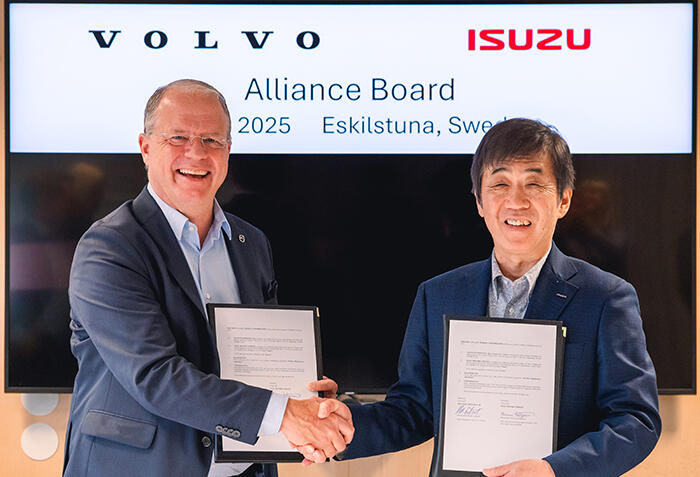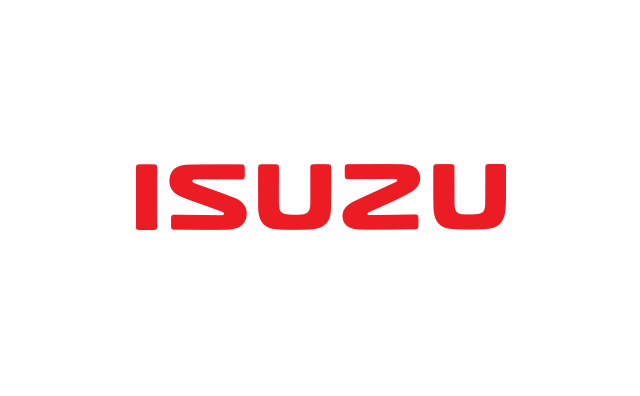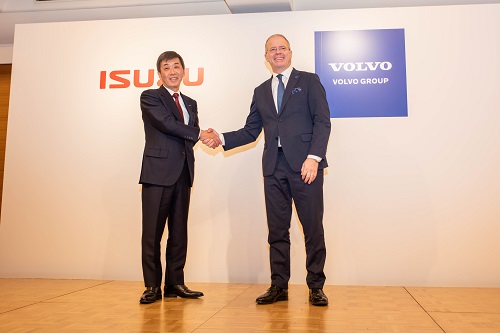Isuzu Motors and Volvo Group newly sign strategic alliance agreements
Isuzu Motors and Volvo Group have signed new strategic agreement that will support the joint development by Isuzu Motors and UD Trucks of a common platform for medium heavy-duty truck models for the Japanese- and other Asian markets, utilizing Volvo Group technology. The deal is built on the strategic partnership framework agreement originally established in October 2020. This long-term collaboration, set for a minimum duration of 20 years, takes up the possibilities and challenges of the logistics industry of the future, maximizing value and benefits for customers as well as for society.

This new agreement includes provisions for the continued supply of key components, particularly powertrains from Volvo Group. It also ensures ongoing technical support in development and quality assurance. The partnership will focus on advancing platform development and strengthening customer support systems to ensure a stable and successful market introduction.
Isuzu Motors remains committed to delivering sustainable and competitive products and services through strong collaboration with the Volvo Group.
"This new agreement marks a significant milestone in the deepening of trust and collaboration between Isuzu Motors and Volvo Group. By combining our technological strengths and expertise, we are paving the way for the future of medium heavy-duty trucks in Japan and across Asia. And it will further enhance the stability and reliability of our products and services for customers," says Masanori Katayama, Chairman & CEO of Isuzu Motors.
"This setup creates a true win-win. By leveraging shared technology, both parties can drive industrial efficiency and long-term value for customers. It strengthens our ability to grow revenues while contributing to a more competitive offering in the Asian market," says Martin Lundstedt President and CEO of the Volvo Group.
By signing this agreement, Isuzu Motors and Volvo Group will complement each other’s strengths, leverage their respective technologies, and create larger scale synergies to further strengthen their strategic alliance and address future logistics challenges.












